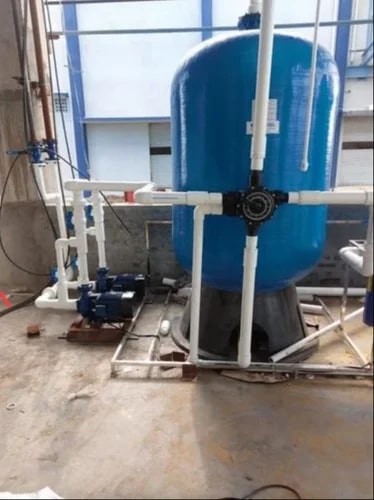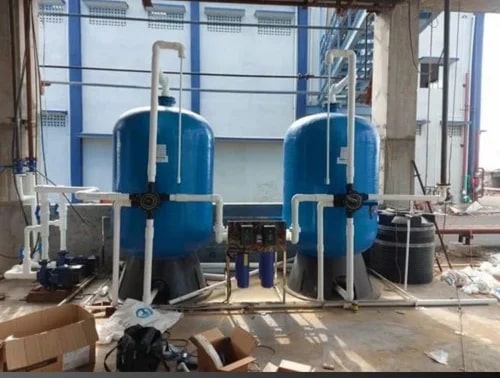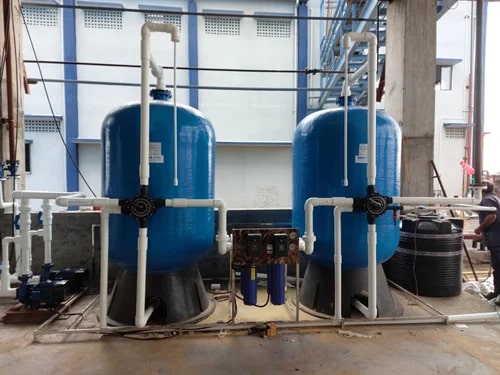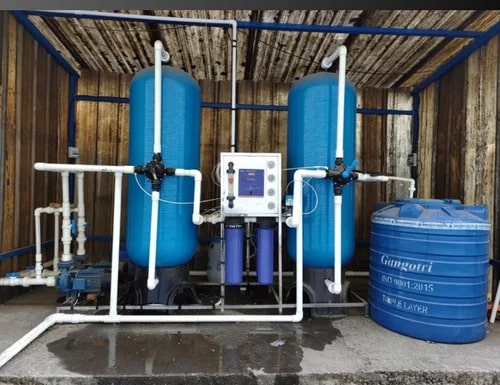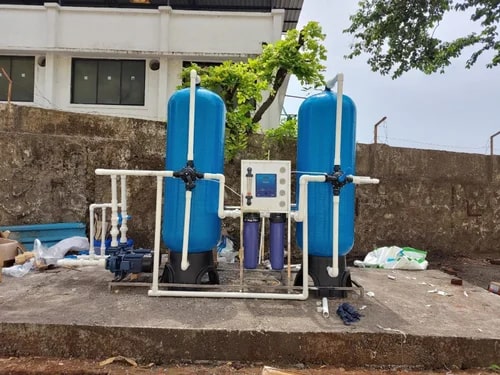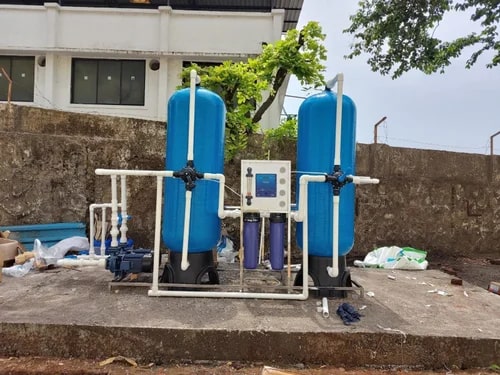Kamrej, Surat, Gujarat
- GST NO. : 24ACCFA9694A1ZI
Water Softening Plants
Leading Manufacturers and Wholesaler of 20000 LPH Water Softening Plant, Commercial Water Softening Plant and Domestic Water Softening Plant from Surat.
| Business Type | Manufacturer, Supplier |
| Body Material | FRP |
| Driven Type | Electric |
| Voltage | 220V |
| Capacity | 20000 Ltr /hr |
| Country of Origin | India |
| Water Source | Borewell Water |
| tank type | Horizontal |
| Max Water Recovery Rate | 80-90% |
| Frequency | 40-50 Hz |
Preferred Buyer From
| Location | Anywhere in India |
A 20,000 Liters Per Hour (Lph) Water Softener is a System Designed to Treat Water by Removing Minerals, Primarily Calcium and Magnesium Ions, Which Cause Water Hardness. The Softening Process Typically Involves Ion Exchange, Where Hard Ions Are Exchanged for Sodium Ions. This Helps Prevent Scale Buildup in Pipes and Appliances, Improving the Efficiency and Lifespan of Water-using Equipment. The 20,000 Lph Capacity Indicates the Maximum Flow Rate at Which the Water Softener Can Effectively Operate, Making It Suitable for Applications With a High Demand for Treated Water, Such as Large-scale Industrial or Commercial Settings.
| Business Type | Manufacturer, Supplier |
| Driven Type | Electric |
| Color | Blue |
| Automatic Grade | Automatic |
| Voltage | 220V |
| Capacity | 150 - 200 Liters |
| Warranty | 1year |
| Country of Origin | India |
| Max Water Recovery Rate | 80-90% |
Preferred Buyer From
| Location | Anywhere in India |
A Water Softening Plant is a Facility or System Designed to Reduce the Hardness of Water by Removing Minerals, Primarily Calcium and Magnesium Ions. Here's a Brief Description:A Water Softening Plant Typically Employs Ion Exchange Technology. The Process Involves Passing Hard Water Through a Resin Bed Containing Sodium Ions. As the Hard Water Flows Through the Resin, Calcium and Magnesium Ions Are Exchanged for Sodium Ions, Resulting in Softened Water.Water Softening is Essential in Preventing Scale Buildup in Plumbing, Appliances, and Industrial Equipment. Hard Water Can Cause Scaling, Reducing the Efficiency of Water Heaters and Other Appliances, and Can Lead to Increased Maintenance Costs.Water Softening Plants Are Commonly Used in Residential, Commercial, and Industrial Settings Where Hard Water is a Prevalent Issue. They Contribute to Extending the Lifespan of Appliances, Improving the Efficiency of Water Heaters, and Enhancing the Overall Quality of Water for Various Applications.
| Business Type | Manufacturer, Supplier |
| Driven Type | Electric |
| Color | Blue |
| Automatic Grade | Automatic |
| Voltage | 220V |
| Capacity | 500 LPH |
| Country of Origin | India |
| Water Source | Borewell Water |
| tank type | Vertical |
| cleaning system | Ion-exchange Resin Method |
| Frequency | 40-50Hz |
Preferred Buyer From
| Location | Anywhere in India |
A Water Softening Plant is a Facility or System Designed to Reduce the Hardness of Water by Removing Minerals, Primarily Calcium and Magnesium Ions. Here's a Brief Description:A Water Softening Plant Typically Employs Ion Exchange Technology. The Process Involves Passing Hard Water Through a Resin Bed Containing Sodium Ions. As the Hard Water Flows Through the Resin, Calcium and Magnesium Ions Are Exchanged for Sodium Ions, Resulting in Softened Water.Water Softening is Essential in Preventing Scale Buildup in Plumbing, Appliances, and Industrial Equipment. Hard Water Can Cause Scaling, Reducing the Efficiency of Water Heaters and Other Appliances, and Can Lead to Increased Maintenance Costs.Water Softening Plants Are Commonly Used in Residential, Commercial, and Industrial Settings Where Hard Water is a Prevalent Issue. They Contribute to Extending the Lifespan of Appliances, Improving the Efficiency of Water Heaters, and Enhancing the Overall Quality of Water for Various Applications.


